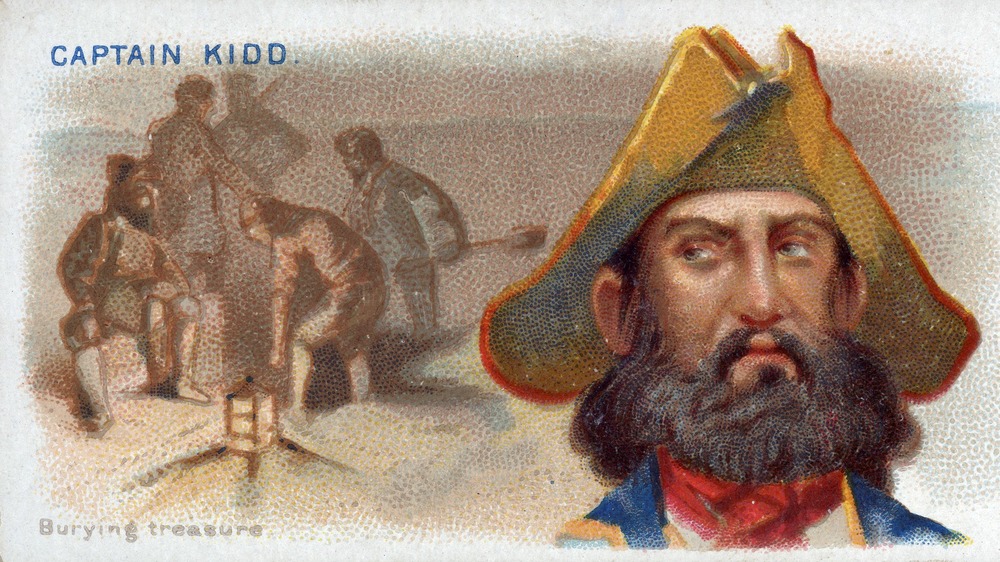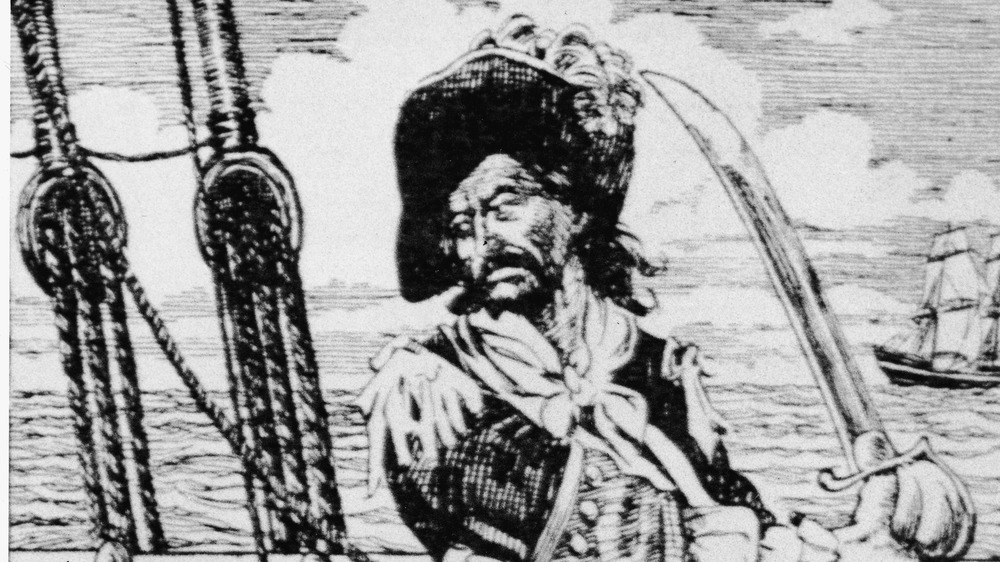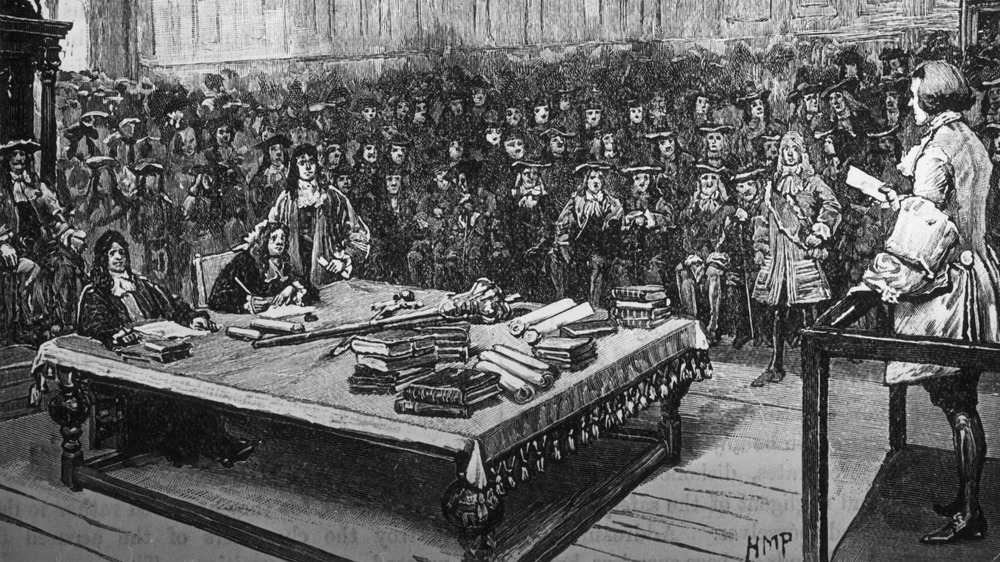The Tragic History Of Captain William Kidd
There are plenty of famous pirates who earned their reputations bringing terror to the high seas: Blackbeard, Calico Jack, and Henry Morgan, to name a few. Sadly, Captain William Kidd is often grouped with these marauders thanks to what is perhaps one of the most ill-timed returns in sailing history.
Captain William Kidd, born in 1654 in Dundee, Scotland, according to Historic UK, was a successful sea captain and privateer who emigrated to America in the 1680s. Britannica defines a privateer as someone working on a ship that, while privately owned, was sanctioned by a government to attack enemy ships, as it was expected that any plundered goods or wealth would be shared with the state. Unfortunately, while Captain Kidd's exploits as a privateer were supported and celebrated, once he was considered to have participated in piracy, his life took a downward turn. Here's a bit more about the tragic history of Captain William Kidd.
Captain William Kidd, a privateer turned pirate
According to Historic UK, Captain William Kidd was an accomplished privateer by the 1690s. During a period of war between England and France, he was commissioned by the British government to defend English and American trade routes with the West Indies from pirates in the Indian Ocean. Captain Kidd's publicly ordered mandate was strictly to rid the seas of pirates, but his government supporters almost certainly knew about, if not encouraged, the capture of enemy ships, settlements, and their cargo.
So, on September 6, 1696, Captain Kidd left New York in command of the Adventure Galley, a 32-gun warship manned by a crew of 150, for the Indian Ocean. However, History Today states Captain Kidd eventually turned to piracy. Kidd would hoist a blood-red flag or a French flag to capture merchant ships, and in one instance, he hit crew member William Moore in the head with an iron bucket, inflicting an ultimately fatal wound. In 1698, Captain Kidd's crew took the Quedah Merchant, which was carrying a trove of valuable trade goods like silk, sugar, and opium, off the southern tip of India. Kidd renamed the vessel Adventure Prize and arrived in the West Indies in April 1699, where he found he had been deemed a pirate by the British government.
An ironically tragic end for Captain Kidd
During his time at sea, privateering became associated with piracy, and the attitude toward the practice had changed. In the American colonies, Captain William Kidd was able to secure a pardon from the British government, and he was permitted to sail to Boston.
However, Captain Kidd was arrested in Boston on July 7, 1699, on orders from the British governor, Lord Richard Bellomont, who Historic UK says was an investor in Kidd's sanctioned mission. Kidd was sent to England aboard the frigate Advice in February 1700, where he stood a hopelessly skewed trial that began May 8 and concluded the following day. Kidd was found guilty of murdering a crew member and committing multiple acts of piracy.
As History Today notes, Captain William Kidd spent his final days in Newgate Gaol and was publicly hanged on Execution Dock at Wapping on May 23, 1701. Before his execution, Kidd offered a warning to captains not to follow in his footsteps. Unfortunately, he had to be hung twice because the first rope snapped, making his execution even more tragic. Captain Kidd's body was then hung in a gibbet and displayed at Tilbury Point at the mouth of the Thames River, where it was left to rot as a warning against piracy. Captain Kidd's final tragedy may be his still unrecovered treasure, which he is rumored to have hidden sometime before his return to England.


